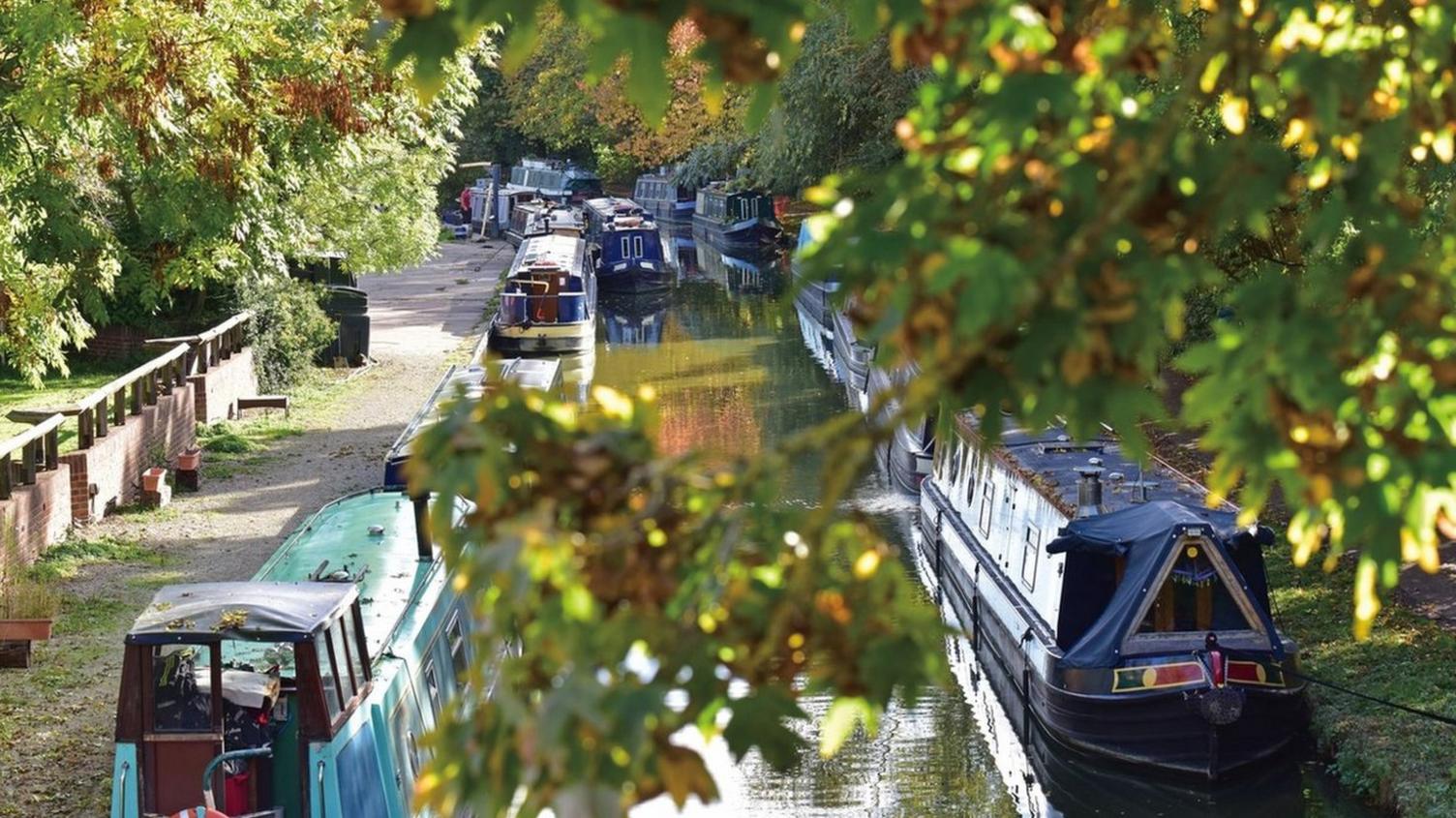Oxford 'frustrating and irritating', says Pullman
'Oxford is a very frustrating and irritating place'
- Published
Sir Philip Pullman has described his home city of Oxford as a "frustrating and irritating place" and criticised the "absolutely ridiculous" closure of Botley Road.
The world-famous author used the city as the setting of his bestselling books about heroine Lyra Silvertongue, who first appeared in Northern Lights in 1995.
He gave a talk at the University of Oxford Mathematical Institute on Tuesday, as part of the Jericho suburb's 200th anniversary celebrations.
Speaking to BBC Radio Oxford, Pullman called the ongoing closure of Botley Road "a bugbear to people on the west of Oxford".
The author, who lives in Cumnor, said: "It's very difficult and it's had a terrible effect on Botley itself and the shops.
"Those of us who live to the west of Oxford are more or less cut off from our own city by a piece of planning so egregiously bad that I've never seen the like.
"And now, on top of that, we've got the difficulty of coping with congestion charges and roads we're not allowed to drive down.
"It is a very frustrating and irritating place - how anyone can be expected to make a living in Oxford as a trader, as a shopkeeper, or anything like that, I do not know."
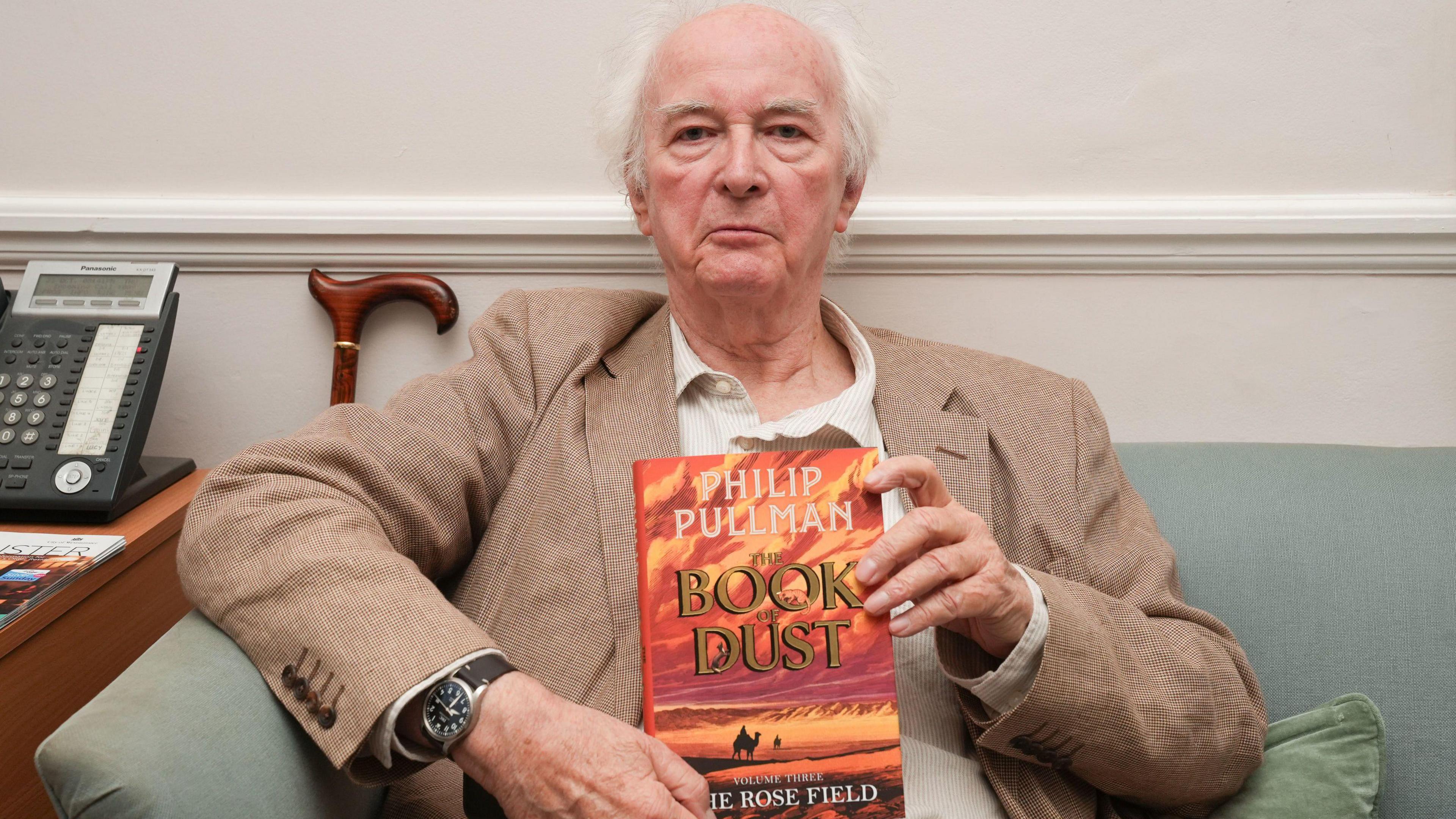
Philip Pullman released The Rose Field in October
The author released the third volume in The Book of Dust series, The Rose Field, in October.
It also is the final book in his two trilogies about Lyra, His Dark Materials and The Book of Dust.
He said he found it "gratifying" when people wrote to him or approached him in Oxford.
"You start writing by yourself with your piece of paper and your pencil and you're on your own," he said.
"You don't see where it's going to go, you hope it's going to be read, you hope people are going to like it and recommend it to their friends.
"I'm very happy with it because I lived in Oxford most of my life, certainly for the last 50 odd years, so it's home for me."
More stories from Oxfordshire
Reading is 'best thing' for children, author says
- Published1 day ago
Nearly 2,000 homes delayed over sewage concerns
- Published1 day ago
Neil Young set for Blenheim Palace headline slot
- Published22 hours ago
Pullman also shared views on the state of children's literacy across the county.
Earlier in the year, statistics showed Oxfordshire in the bottom 25% of English counties for KS1 and KS2 literacy rates, having previously been ranked the worst.
The 2025 World Literacy Summit estimated more than half of children from lower-income households in the county struggled to read.
"It's desperately sad that anyone should be deprived of this wonderful resource of books and reading and libraries," Pullman said.
"The ubiquity of the little tiny screen and the increasing scarcity of books is something I feel very sad about and very angry about, too, when I let myself get angry."
Head of highways at Oxfordshire County Council Andrew Gant previously said the city's congestion charge was part of wider plans to provide "better public transport, cleaner air, safer roads and better conditions for walking, cycling and wheeling".
Network Rail has apologised for "the ongoing inconvenience" caused by the £231m project to expand Oxford station and said it continued to "regularly communicate with those affected".
Get in touch
Do you have a story BBC Oxfordshire should cover?
You can follow BBC Oxfordshire on Facebook, external, X (Twitter), external, or Instagram, external.
Related topics
Similar stories
- Published22 October
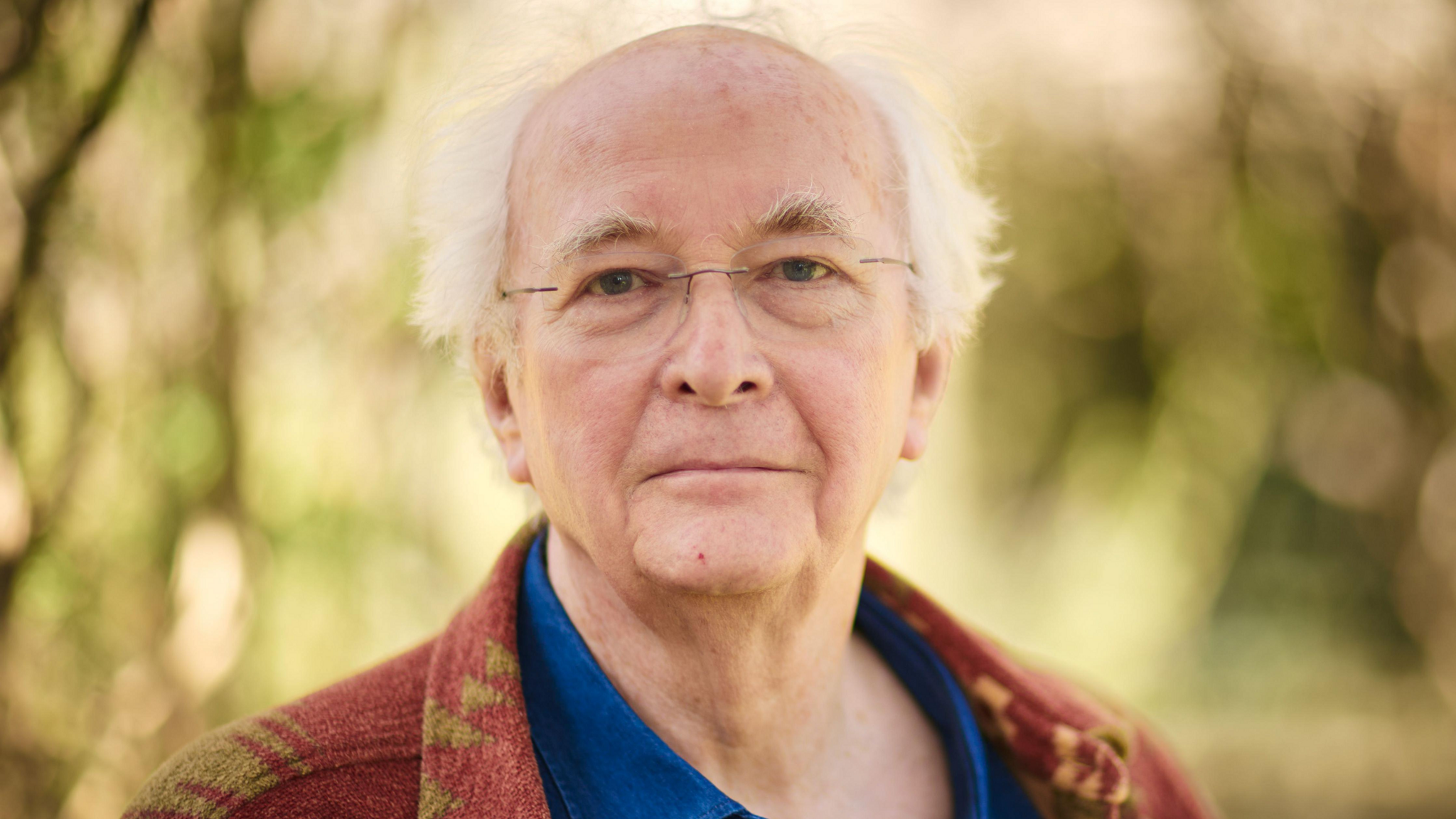
- Published29 April
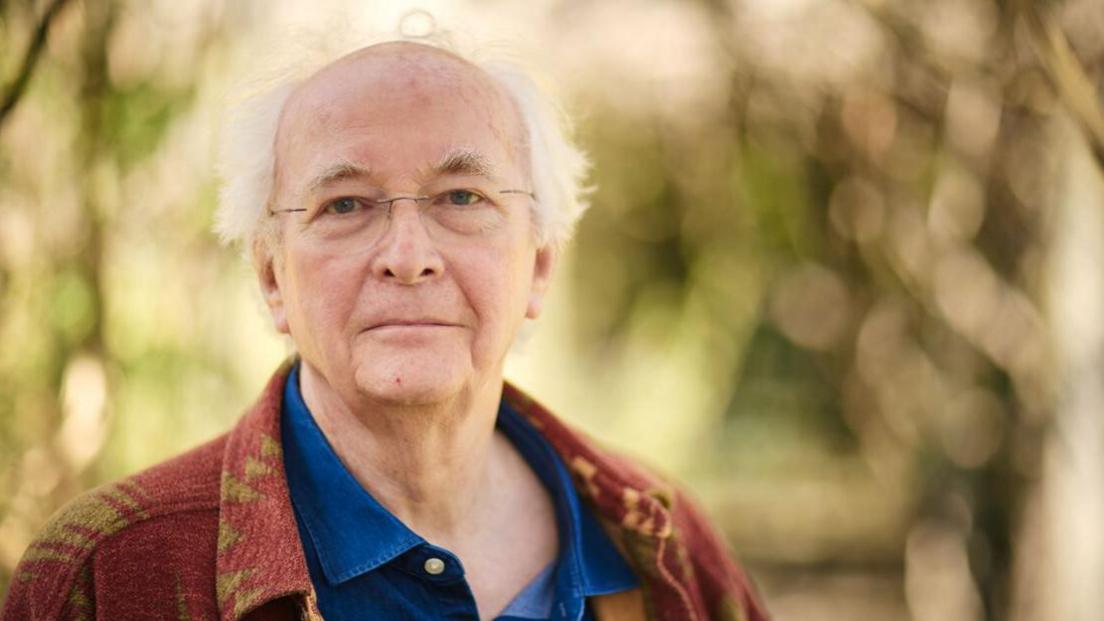
- Published13 May
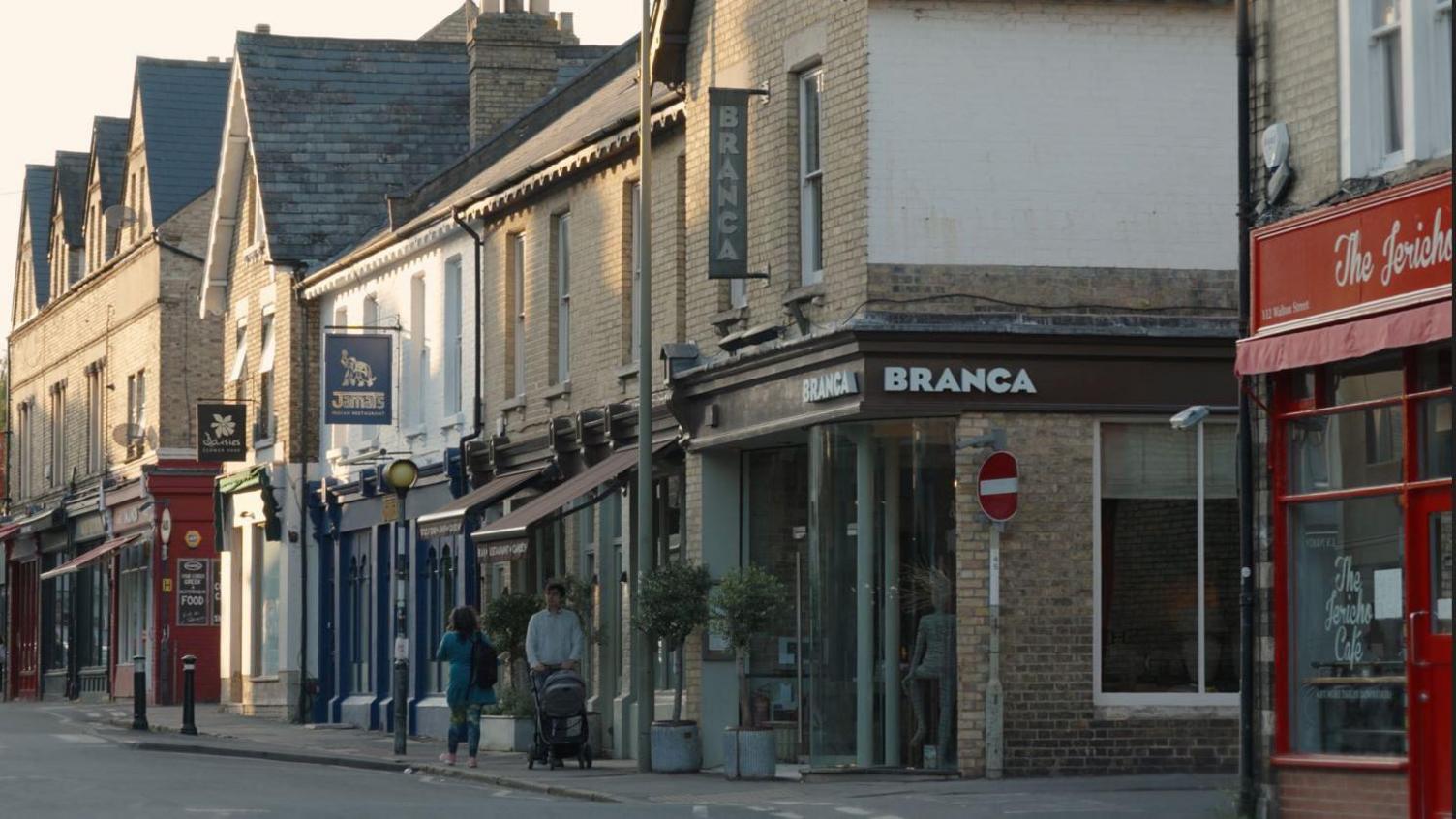
- Published31 December 2022
